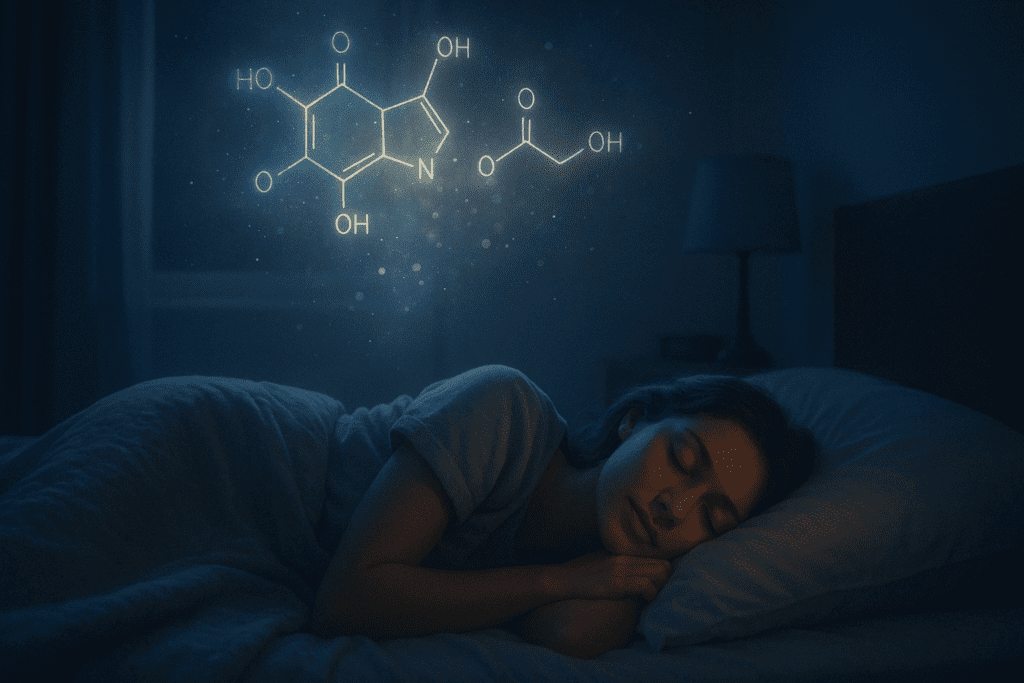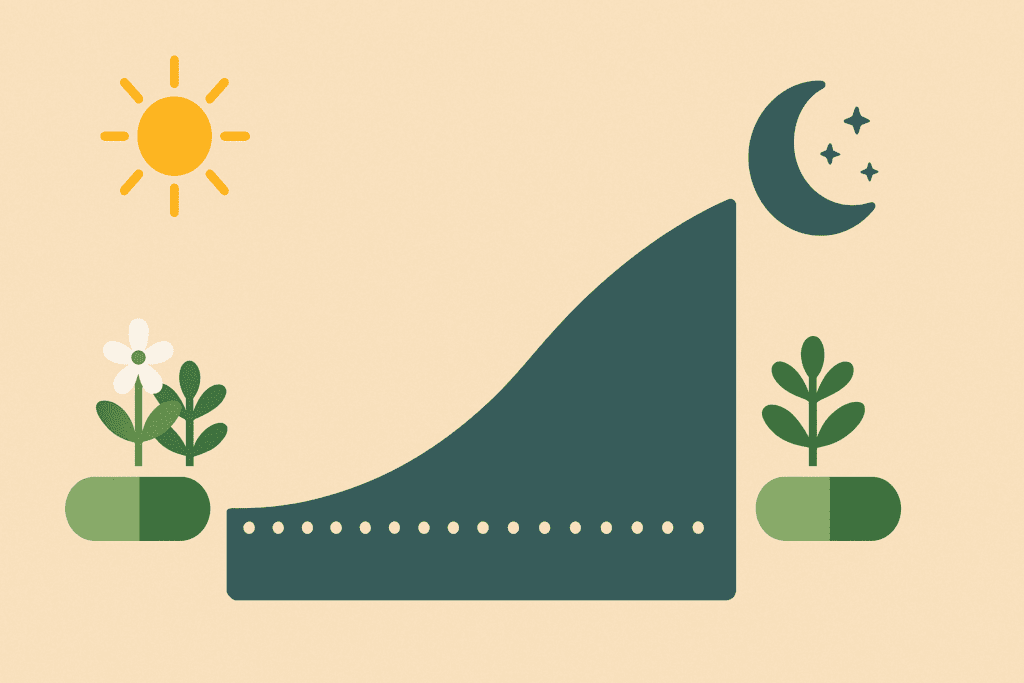Understanding Bacopa Monnieri: A Natural Wonder for Mind and Body
Bacopa monnieri, often referred to as Brahmi in traditional Ayurvedic medicine, is a small, creeping herb that has captured the attention of modern researchers and wellness enthusiasts alike. Known for its adaptogenic and cognitive-enhancing properties, Bacopa has been used for centuries to support memory, mental clarity, and overall well-being. As interest in natural sleep aids continues to grow, many are now asking: can Bacopa monnieri support better sleep? Understanding the historical uses and bioactive compounds of Bacopa offers a crucial foundation for exploring its role in promoting relaxation and restful nights.
You may also like: Bacopa Monnieri Plant Benefits: How This Ancient Herb Supports Brain Health, Focus, and Memory Naturally”
What sets Bacopa apart from other herbal supplements is its diverse array of active constituents, particularly bacosides. These naturally occurring saponins are believed to play a central role in Bacopa’s neuroprotective and calming effects. Modern science has begun to unravel the molecular pathways through which Bacopa interacts with neurotransmitters, stress hormones, and inflammatory processes. As we dive deeper into the connection between Bacopa monnieri and sleep, it becomes clear that its multifaceted benefits extend far beyond simple relaxation, touching on complex systems within the brain and body that regulate our circadian rhythms and emotional health.
The Link Between Stress, Sleep, and Bacopa Monnieri
Stress and sleep are intimately intertwined, with elevated stress levels often leading to difficulty falling asleep, frequent nighttime awakenings, and a general sense of restlessness. Bacopa monnieri sleep benefits are believed to stem largely from the herb’s ability to modulate the body’s response to stress. Research indicates that Bacopa may reduce cortisol, the “stress hormone,” by influencing the hypothalamic-pituitary-adrenal (HPA) axis. A calmer HPA axis response can translate into improved sleep latency and better sleep quality.
One of the most compelling aspects of Bacopa’s stress-reducing potential is its adaptogenic nature. Unlike sedatives that induce drowsiness regardless of the body’s needs, adaptogens like Bacopa work to balance the body’s systems. This means that Bacopa sleep support does not come from simply “knocking you out,” but rather by creating an internal environment more conducive to natural, restorative sleep. By addressing underlying stress and anxiety, Bacopa offers a holistic pathway to better rest without the risk of dependency or morning grogginess that many pharmaceutical sleep aids can cause.

How Bacopa Monnieri Affects Neurotransmitters and Sleep Pathways
Delving deeper into the neurochemical landscape, Bacopa’s influence on neurotransmitters such as serotonin, dopamine, and gamma-aminobutyric acid (GABA) sheds light on its sleep-enhancing properties. Serotonin, often dubbed the “feel-good” neurotransmitter, plays a pivotal role not only in mood regulation but also in sleep initiation. Research suggests that Bacopa may naturally boost serotonin levels, thereby supporting the onset of sleep and enhancing overall sleep satisfaction.
In addition to its effects on serotonin, Bacopa has been shown to support healthy dopamine signaling. Dopamine, while often associated with motivation and reward, also influences the sleep-wake cycle. Proper dopamine balance is crucial for maintaining restful nighttime sleep and promoting daytime alertness. Furthermore, preliminary studies have hinted that Bacopa may enhance GABAergic activity, which has direct calming and sedative effects on the nervous system. By supporting these three key neurotransmitters, Bacopa monnieri sleep benefits appear to be grounded in a robust, multi-faceted neurochemical foundation that goes beyond simple relaxation.
Scientific Evidence Supporting Bacopa Monnieri Sleep Benefits
While traditional use and theoretical mechanisms offer promising insights, scientific validation is critical. Several clinical studies have explored Bacopa’s effects on anxiety, cognitive function, and sleep quality. In a randomized, double-blind, placebo-controlled trial published in the Journal of Ethnopharmacology, participants who received Bacopa extract reported significant improvements in emotional regulation and stress levels compared to the placebo group. Although the study did not exclusively measure sleep outcomes, the reduced anxiety and improved mood correlated strongly with better reported sleep quality.
Another study conducted in healthy elderly participants found that Bacopa supplementation improved memory performance and subjective well-being, both of which are closely tied to sleep satisfaction. While direct investigations specifically targeting “bacopa monnieri sleep” are still relatively limited, the available body of research supports the notion that Bacopa’s broad neurological and psychological benefits naturally extend into the realm of sleep support. Researchers have called for larger, longer-term studies to further clarify Bacopa’s potential as a natural sleep enhancer.

Potential Mechanisms: How Bacopa Supports Relaxation and Sleep
Beyond neurotransmitter modulation and stress reduction, Bacopa may support sleep through several other intriguing mechanisms. One emerging area of interest is Bacopa’s antioxidant capacity. Oxidative stress is increasingly recognized as a disruptor of sleep homeostasis, with elevated free radical activity impairing both sleep duration and quality. Bacopa’s potent antioxidant effects may help neutralize oxidative stress, thus indirectly fostering more stable and restorative sleep cycles.
Additionally, Bacopa’s anti-inflammatory properties could play a significant role in supporting sleep health. Chronic low-grade inflammation has been implicated in insomnia and other sleep disorders. By dampening inflammatory cytokine activity, Bacopa may help restore healthier patterns of sleep architecture. Furthermore, Bacopa’s ability to enhance cerebral blood flow suggests improved oxygen and nutrient delivery to brain regions involved in sleep regulation, such as the thalamus and hypothalamus.
Optimal Dosage and Timing for Bacopa Monnieri Sleep Benefits
When exploring natural solutions for sleep, appropriate dosage and timing are paramount for achieving desired effects without unwanted side effects. Clinical studies typically utilize Bacopa dosages ranging from 300 to 600 mg per day, standardized to a minimum of 50% bacosides. For those interested in Bacopa sleep support, splitting the daily dose between morning and evening may help maintain steady blood levels and support both daytime calmness and nighttime rest.
Timing Bacopa supplementation is somewhat flexible, but many users find that taking a smaller dose in the evening, roughly one to two hours before bedtime, can gently promote relaxation without overwhelming sedative effects. It is important to note that Bacopa’s benefits are often cumulative, meaning that consistent, long-term use yields the best outcomes. As such, individuals seeking bacopa monnieri sleep support should allow at least four to six weeks of daily supplementation before evaluating effectiveness.

Potential Side Effects and Considerations for Bacopa Sleep Support
Although Bacopa is generally regarded as safe for most individuals, it is not without potential side effects. Mild gastrointestinal symptoms, such as bloating, cramping, or nausea, are the most commonly reported adverse effects, particularly at higher dosages. Fortunately, these symptoms often subside with continued use or dose adjustments. Rarely, some individuals may experience vivid dreams or changes in sleep patterns when first introducing Bacopa, although these effects typically diminish over time.
As with any supplement, it is crucial to consider potential interactions with prescription medications. Bacopa may amplify the effects of sedatives, anxiolytics, and antidepressants, leading to enhanced drowsiness or changes in mood. Individuals taking such medications should consult with a healthcare provider before incorporating Bacopa into their regimen. Pregnant and breastfeeding women are also advised to avoid Bacopa until more definitive safety data are available.
Comparing Bacopa Monnieri to Other Natural Sleep Aids
In the crowded landscape of natural sleep aids, Bacopa monnieri occupies a unique niche. Unlike melatonin, which exerts a direct hormonal effect on circadian rhythms, Bacopa works more subtly by modulating underlying stress responses and neurotransmitter activity. This means that Bacopa may be particularly beneficial for individuals whose sleep disturbances stem from anxiety, racing thoughts, or emotional stress rather than a pure circadian disruption.
Compared to herbal sedatives like valerian root or passionflower, Bacopa is less likely to cause immediate drowsiness or sedation. Instead, it supports a gradual rebalancing of nervous system function, making it ideal for those seeking to restore natural sleep patterns without feeling “knocked out.” Moreover, Bacopa’s well-documented cognitive benefits provide an added advantage for individuals concerned with mental sharpness and memory retention alongside their sleep goals.

Real-World Applications: Using Bacopa Monnieri for Sleep Support
In practical terms, individuals interested in exploring bacopa sleep benefits should consider several key strategies. First, selecting a high-quality supplement with standardized bacoside content is essential to ensure potency and consistency. Second, integrating Bacopa into a broader wellness routine, including stress management techniques like mindfulness meditation, yoga, and healthy sleep hygiene practices, can maximize its effectiveness.
Some users find that pairing Bacopa with other adaptogens, such as ashwagandha or Rhodiola rosea, enhances the overall calming and restorative effects. However, careful attention should be paid to potential additive effects on cortisol modulation and neurotransmitter activity. As always, starting with a lower dose and gradually titrating upward allows for individualized assessment and minimizes the risk of adverse reactions.

Frequently Asked Questions: Bacopa Monnieri and Sleep Support
1. Can Bacopa Monnieri help with sleep disorders like insomnia?
Emerging research suggests that Bacopa monnieri may offer supportive benefits for individuals struggling with sleep disorders like insomnia. Although it is not a sedative in the traditional sense, Bacopa influences neurotransmitter systems associated with sleep regulation, particularly serotonin and GABA. By improving stress resilience and emotional balance, Bacopa sleep support can indirectly address underlying causes of insomnia, such as anxiety and intrusive thoughts. For people seeking to manage chronic sleep disruptions naturally, incorporating Bacopa alongside cognitive-behavioral therapy or mindfulness practices could create a synergistic effect. As always, those with severe or persistent insomnia should consult a healthcare provider before introducing Bacopa monnieri sleep supplements into their routine.
2. How long does it typically take to experience Bacopa Monnieri sleep benefits?
Unlike fast-acting sleep aids, Bacopa monnieri typically requires consistent use over a period of time to exert noticeable effects on sleep quality. Most users report initial improvements in relaxation and stress tolerance within four to six weeks of daily supplementation. This gradual onset aligns with Bacopa’s role in modulating long-term neural adaptation rather than producing immediate sedation. Incorporating lifestyle factors such as maintaining a regular sleep schedule can enhance the cumulative benefits of Bacopa sleep strategies. It is essential to approach Bacopa supplementation with patience, recognizing that its profound effects on sleep are part of a broader shift toward balanced nervous system function.
3. Can Bacopa Monnieri be combined with other sleep-supportive herbs safely?
Bacopa monnieri can often be paired with other natural sleep-supportive herbs such as ashwagandha, lemon balm, or chamomile, provided that combinations are approached thoughtfully. Bacopa sleep enhancement primarily works through adaptogenic and cognitive pathways, which differ slightly from the direct sedative properties of herbs like valerian root. A well-designed herbal regimen can target multiple mechanisms of sleep regulation, from cortisol modulation to GABA activation. However, stacking multiple calming herbs without professional guidance could lead to excessive sedation or altered cognitive function during the day. Consulting a knowledgeable practitioner can help create an optimal combination that leverages the unique strengths of Bacopa monnieri sleep support while minimizing risks.
4. Is there a best time of day to take Bacopa Monnieri for sleep support?
While Bacopa can be taken at various times, those focusing on Bacopa monnieri sleep benefits may achieve better results by taking it in the late afternoon or early evening. Timing Bacopa supplementation closer to the end of the day can align its stress-reducing effects with the body’s natural preparation for rest. Some individuals may find that taking Bacopa too close to bedtime stimulates mental clarity rather than promoting drowsiness, so slight adjustments in timing may be needed. Personalized experimentation, tracking responses over several days, often yields the best schedule for Bacopa sleep optimization. Consistency remains key, as irregular use may limit the herb’s full potential to support healthy sleep patterns.
5. Does Bacopa Monnieri improve deep sleep stages specifically?
Although direct human studies isolating Bacopa monnieri’s effects on specific sleep stages like deep non-REM sleep are limited, animal research and clinical observations offer intriguing insights. Bacopa’s antioxidant and neuroprotective properties suggest it may enhance the quality of restorative sleep by reducing oxidative damage in brain areas critical for deep sleep. Additionally, its ability to regulate neurotransmitters involved in sleep architecture hints at potential benefits for increasing time spent in the most rejuvenating phases of sleep. Users seeking to enhance deep sleep with Bacopa sleep strategies should also prioritize supportive habits, such as darkening the bedroom environment and limiting screen exposure before bedtime. Future research will likely further clarify Bacopa’s role in optimizing sleep microarchitecture.
6. Can Bacopa Monnieri help with sleep disturbances caused by anxiety or PTSD?
Preliminary evidence and anecdotal reports suggest that Bacopa monnieri may offer valuable support for individuals experiencing sleep disturbances related to anxiety or post-traumatic stress disorder (PTSD). Bacopa’s adaptogenic profile allows it to buffer the physiological impacts of chronic stress and emotional trauma, two major drivers of disrupted sleep. In particular, its influence on the serotonin system can foster a sense of emotional stability conducive to improved sleep. While Bacopa sleep interventions may not replace formal treatments for anxiety or PTSD, they can complement psychotherapeutic approaches and medication protocols under professional supervision. Integrating Bacopa thoughtfully into a comprehensive mental health and sleep care plan could lead to meaningful improvements in sleep quality over time.
7. Are there differences in Bacopa Monnieri effectiveness between capsules, powders, and teas for sleep support?
The method of Bacopa monnieri preparation can significantly influence its effectiveness for promoting relaxation and sleep. Standardized extracts found in capsules typically offer the most reliable concentrations of active bacosides, making them ideal for those seeking targeted Bacopa sleep benefits. Powders can provide flexibility in dosing and are often favored by individuals who prefer to blend Bacopa into smoothies or teas. However, Bacopa teas, while soothing, may deliver lower and less consistent doses of active compounds unless carefully standardized. Choosing the appropriate form depends largely on individual preferences, lifestyle factors, and specific sleep support goals. Ensuring product quality and consistency remains essential regardless of the delivery method.
8. What role does Bacopa Monnieri play in dream vividness and sleep perception?
Some users of Bacopa monnieri report experiencing more vivid dreams and a heightened awareness of the dreaming process, a phenomenon known as lucid dreaming. This effect may arise from Bacopa’s cognitive-enhancing properties, particularly its ability to promote memory consolidation and synaptic plasticity during sleep. Enhanced sleep perception linked to Bacopa sleep usage might also reflect more seamless transitions through various sleep stages, resulting in richer dream experiences. However, for individuals sensitive to intensified dreams, adjusting Bacopa timing or dosage may help fine-tune the experience. Exploring the relationship between Bacopa monnieri sleep support and dream activity represents an exciting frontier for sleep research and personal experimentation.
9. How does Bacopa Monnieri compare to melatonin supplements for sleep aid purposes?
Bacopa monnieri and melatonin supplements offer fundamentally different approaches to supporting sleep. Melatonin acts as a hormonal signal that directly influences circadian rhythms, making it useful for adjusting sleep timing, such as during jet lag. In contrast, Bacopa sleep support works by enhancing the body’s internal stress management, neurotransmitter balance, and emotional regulation, fostering conditions conducive to natural sleep without externally manipulating circadian hormones. Individuals seeking a gentle, cumulative method of improving sleep quality often gravitate toward Bacopa monnieri, while those needing immediate circadian adjustment might opt for melatonin. Understanding these differences allows users to tailor their approach based on specific sleep challenges and lifestyle needs.
10. What are the potential long-term benefits of using Bacopa Monnieri for sleep enhancement?
Beyond immediate improvements in relaxation and sleep quality, long-term Bacopa monnieri supplementation may contribute to broader neurological and psychological resilience. Chronic poor sleep is linked to cognitive decline, emotional dysregulation, and increased risk of metabolic and cardiovascular issues. By supporting healthier stress responses and protecting neural pathways, Bacopa sleep strategies could mitigate some of the long-term harms associated with chronic sleep deprivation. Moreover, regular use of Bacopa in the context of a comprehensive wellness plan may reinforce habits and neural patterns that sustain lifelong sleep health. These broader benefits position Bacopa as not merely a sleep aid but a cornerstone of holistic cognitive and emotional well-being.

Final Thoughts: Can Bacopa Monnieri Truly Help You Relax and Sleep Better Naturally?
The growing body of evidence suggests that Bacopa monnieri holds significant promise as a natural support for relaxation and improved sleep quality. By addressing key factors such as stress regulation, neurotransmitter balance, oxidative stress reduction, and inflammation modulation, Bacopa offers a holistic, science-backed approach to fostering healthier sleep patterns. While more targeted research specifically examining “bacopa monnieri sleep” outcomes is needed, existing studies and traditional wisdom converge to paint a compelling picture.
For individuals seeking an alternative to pharmaceutical sleep aids, Bacopa represents a thoughtful and multifaceted option. With its gentle adaptogenic properties, cognitive benefits, and cumulative effectiveness, it aligns beautifully with a broader strategy for long-term wellness. As always, informed decision-making, individualized assessment, and consultation with healthcare providers remain crucial for safe and successful integration of Bacopa into one’s sleep support regimen.
In the end, unlocking the potential of Bacopa monnieri for sleep is not about chasing a quick fix but about nurturing the body’s innate capacity for balance, restoration, and vibrant health. For many, this small but mighty herb may prove to be a valuable ally on the journey toward deeper, more restful nights and brighter, more focused days.
Further Reading:
Ayurvedic Health Benefits of Brahmi: A Natural Remedy for Mind & Body
Was this article helpful? Don’t let it stop with you. Share it right now with someone who needs to see it—whether it’s a friend, a colleague, or your whole network. And if staying ahead on this topic matters to you, subscribe to this publication for the most up-to-date information. You’ll get the latest insights delivered straight to you—no searching, no missing out.
.Important Note: The information contained in this article is for general informational purposes only, and should not be construed as health or medical advice, nor is it intended to diagnose, prevent, treat, or cure any disease or health condition. Before embarking on any diet, fitness regimen, or program of nutritional supplementation, it is advisable to consult your healthcare professional in order to determine its safety and probable efficacy in terms of your individual state of health.
Regarding Nutritional Supplements Or Other Non-Prescription Health Products: If any nutritional supplements or other non-prescription health products are mentioned in the foregoing article, any claims or statements made about them have not been evaluated by the U.S. Food and Drug Administration, and such nutritional supplements or other health products are not intended to diagnose, treat, cure, or prevent any disease.


